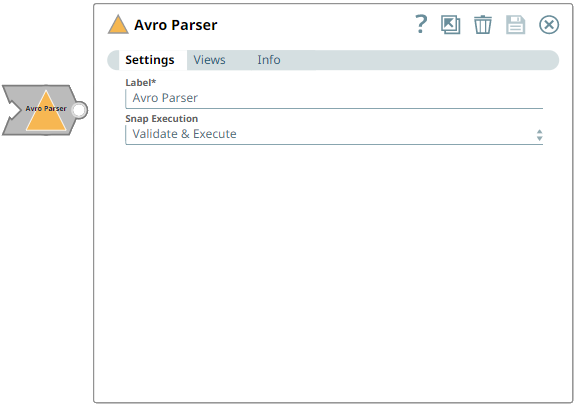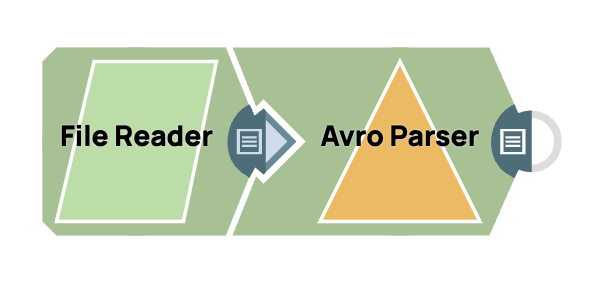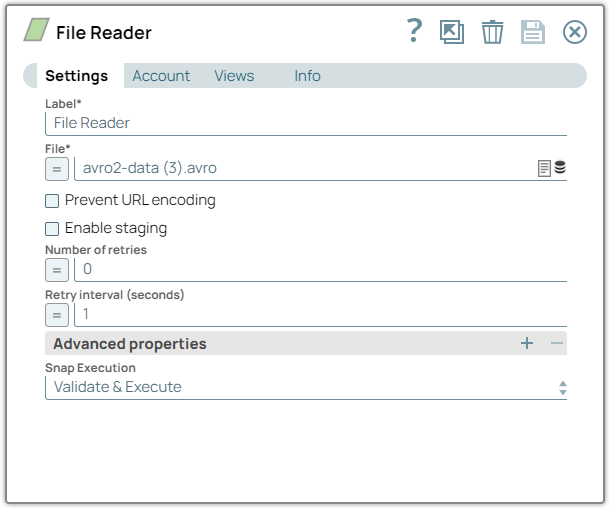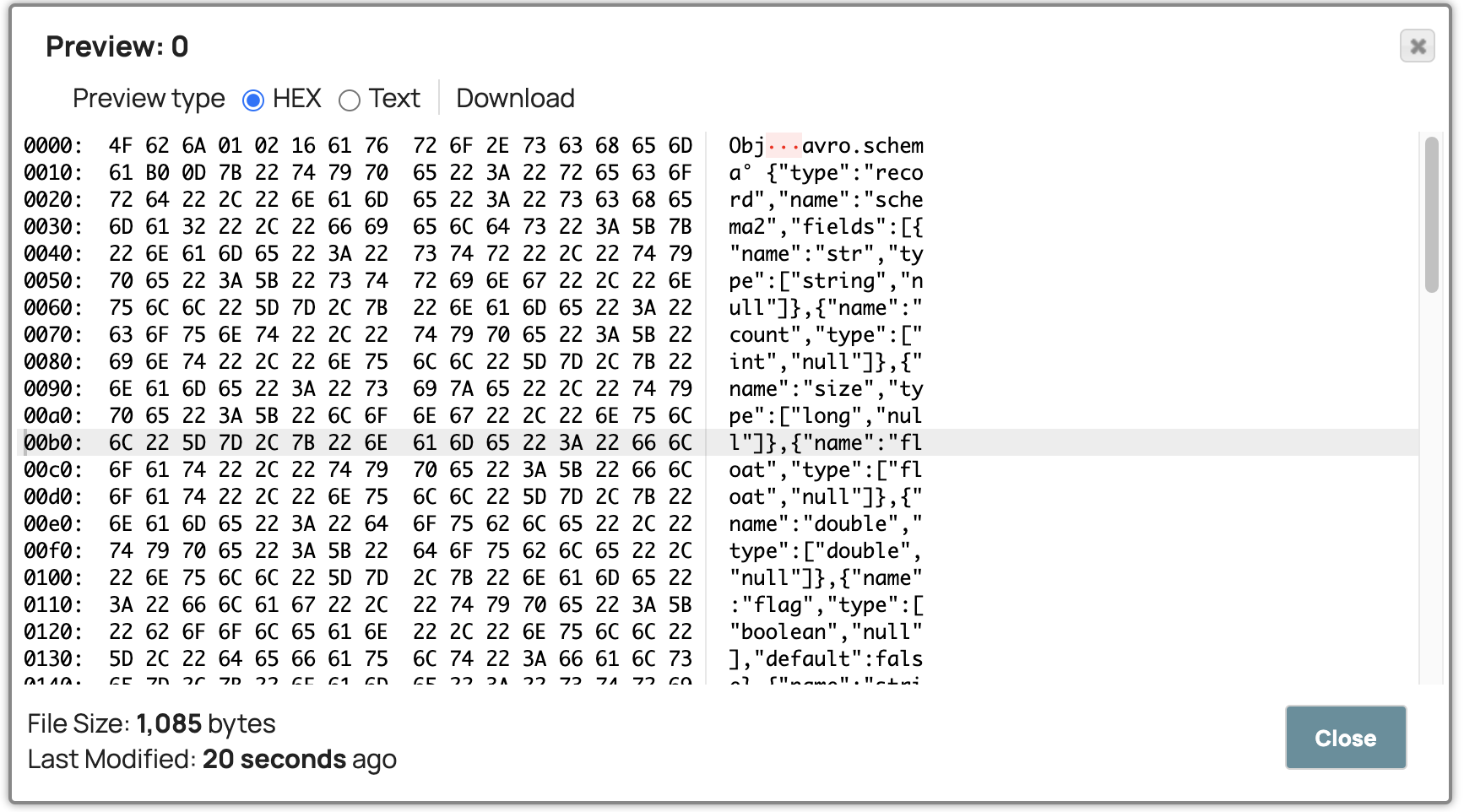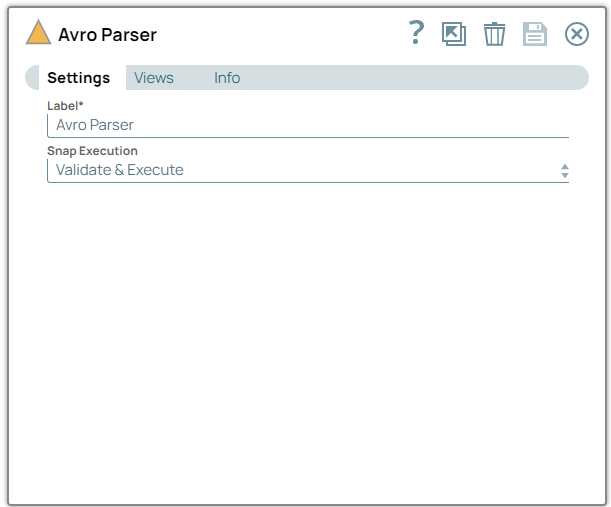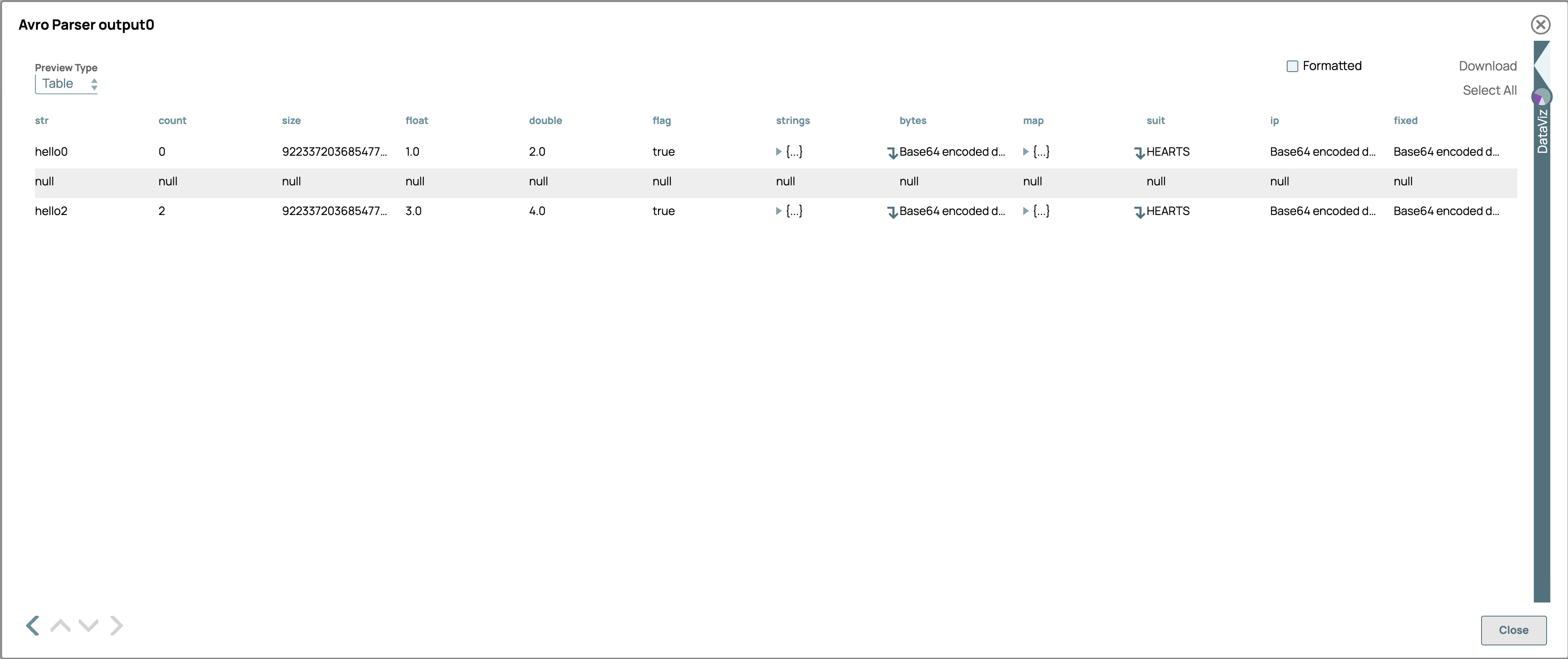In this article
Overview
You can use this Snap to deserialize Avro-formatted data into SnapLogic document objects.
Snap Type
Avro Formatter Snap is a PARSE-type Snap that parses Avro-formatted data into SnapLogic document objects.
Prerequisites
None.
Support for Ultra Pipelines
Works in Ultra Pipelines.
Limitations
None.
Known Issues
The Snap might fail due to the ClassCastException error. SnapLogic recommends you to upgrade to the 425patches9815 version.
Snap Views
Type | Format | Number of Views | Examples of Upstream and Downstream Snaps | Description |
|---|---|---|---|---|
Input | Document |
| Binary | Any Snap that provides a serialized stream which contains data and its schema according to Avro specification. |
Output | Document |
|
| Any document processing Snap document that processes the documents created through the deserialization process. |
Error | Error handling is a generic way to handle errors without losing data or failing the Snap execution. You can handle the errors that the Snap might encounter while running the Pipeline by choosing one of the following options from the When errors occur list under the Views tab. The available options are:
Learn more about Error handling in Pipelines. | |||
Snap Settings
Asterisk (*): Indicates a mandatory field.
Suggestion icon (
 ): Indicates a list that is dynamically populated based on the configuration.
): Indicates a list that is dynamically populated based on the configuration.Expression icon (
 ): Indicates whether the value is an expression (if enabled) or a static value (if disabled). Learn more about Using Expressions in SnapLogic.
): Indicates whether the value is an expression (if enabled) or a static value (if disabled). Learn more about Using Expressions in SnapLogic.Add icon (
 ): Indicates that you can add fields in the field set.
): Indicates that you can add fields in the field set.Remove icon (
 ): Indicates that you can remove fields from the field set.
): Indicates that you can remove fields from the field set.
Field Name | Type | Description |
|---|---|---|
Label* Default Value: Avro Parser | String | Specify the name for the Snap. You can modify this to be more specific, especially if you have more than one of the same Snap in your Pipeline. |
Snap Execution Default value: Validate & Execute | Dropdown list | Select one of the three modes in which the Snap executes. Available options are:
|
Temporary Files
During execution, data processing on Snaplex nodes occurs principally in-memory as streaming and is unencrypted. When larger datasets are processed that exceeds the available compute memory, the Snap writes Pipeline data to local storage as unencrypted to optimize the performance. These temporary files are deleted when the Snap/Pipeline execution completes. You can configure the temporary data's location in the Global properties table of the Snaplex's node properties, which can also help avoid Pipeline errors due to the unavailability of space. For more information, see Temporary Folder in Configuration Options.
Examples
Deserializing Avro data
This example pipeline demonstrates how to read an Avro file and convert it to a structured data format that can be used in downstream applications.
Configure the File Reader Snap to read the avro2-data (3).avro file. On validation, the Snap displays the data in binary format.
2. Configure the Avro Parser Snap to parse the data. On validation, the Snap displays the deserialized data.
